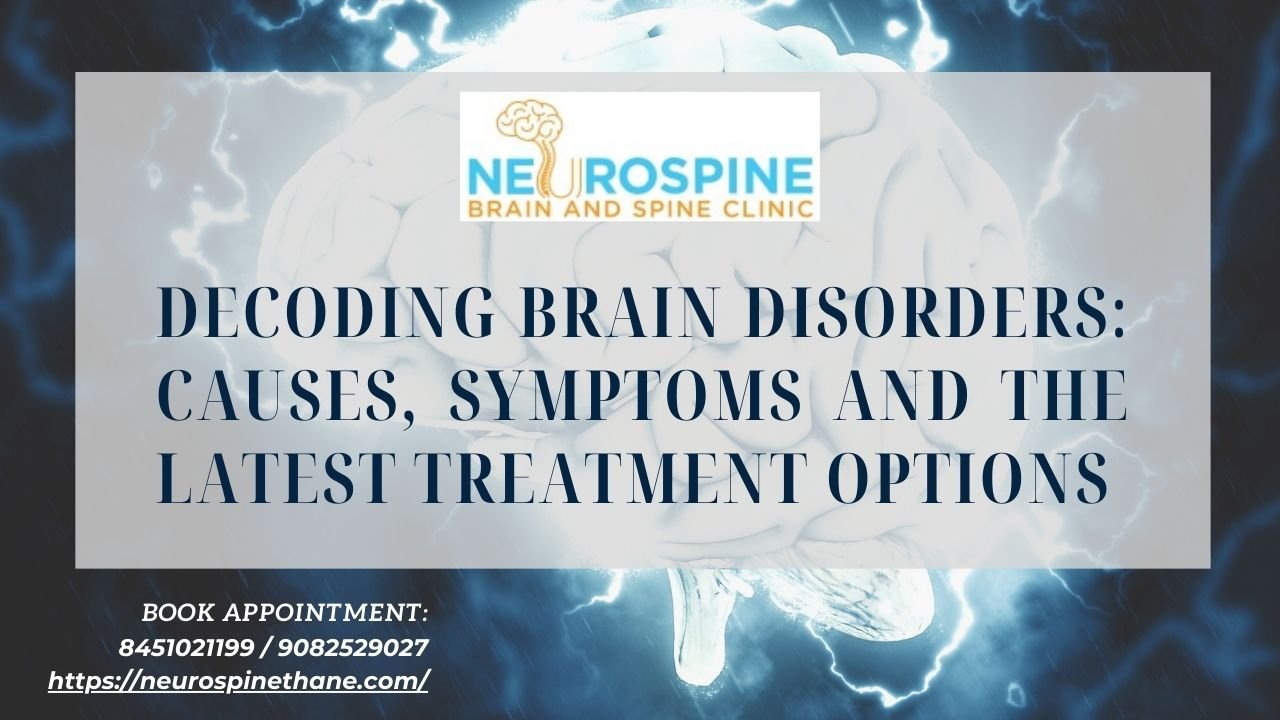Chronic neck pain isn’t just uncomfortable—it’s your body’s signaling that something deeper might be wrong. Whether it’s stiffness, sharp twinges, or a persistent ache that won’t go away, the root cause often lies in the cervical spine. What many dismiss as “just neck pain” can sometimes point to underlying neurological or spinal conditions that need expert evaluation.
If you’ve been silently enduring this discomfort, it’s time to seek answers. With advanced brain treatments in Thane and access to an experienced neurologist in Thane, you no longer have to live in pain or uncertainty. This blog breaks down the common causes of neck pain and offers a neurosurgeon’s expert perspective on when to seek professional care.
Top 7 Reasons Why Your Neck Hurts
1. Degenerative Disc Disease
Degenerative Disc Disease stands out as the primary cause of neck pain since it appears naturally as people get older. The intervertebral discs within your neck suffer from dehydration and height reduction through ageing, which reduces their ability to protect the vertebrae. The increased stress on surrounding tissues due to this condition creates painful stiffness, which may compress nerves. While “disease” might sound alarming, it’s more accurately described as wear and tear..
2. Cervical Spondylosis (Arthritis of the Neck)
Cervical Spondylosis (Arthritis of the Neck) causes the same neck bone and cartilage degeneration that occurs in cervical spondylosis. The development of bone spurs, known as osteophytes, causes spinal canal narrowing, referred to as spinal stenosis and constricts the spaces where nerves exit the spine, called neural foraminal stenosis. The spinal canal and nerve root spaces become narrower because of this condition, leading to spinal cord and nerve root compression that produces persistent neck pain with shoulder and arm sensations, numbness and weakness.
3. Muscle Strain and Poor Posture
Prolonged use of smartphones, tablets, and computers creates excessive strain on neck muscles because of improper posture. Improper positioning for a long time in any position, including sitting, standing, and sleeping, creates muscle imbalances and trigger points that result in persistent neck pain.
4. Herniated Disc
A herniated disc produces intense acute pain, but its presence can also result in enduring neck problems. A herniated intervertebral disc occurs when its soft gel-like substance breaks through the outer layer to compress nearby nerve roots. The condition produces continuous neck pain, which may manifest as cervical radiculopathy with shooting pain in the arm, numbness or tingling sensations, and weakness throughout the arm.
5. Whiplash and Other Injuries
A sudden, forceful jolt to the neck, such as in a car accident (whiplash), can damage the cervical spine’s muscles, ligaments, and discs. The initial period of acute pain typically ends, but some victims experience persistent neck pain that endures beyond multiple months and might continue for years after their initial injury. Long-term neck problems can appear after injuries that include car accidents, like whiplash and sports-related or falling incidents.
6. Nerve Compression (Pinched Nerve)
Nerve compression in the body can occur from different causes, including disc herniation, bone spurs, and spinal stenosis. The compression or irritation of a neck nerve root produces chronic pain that travels through the nerve path to reach the shoulder and extend into the arm and hand. The pain often includes unusual sensations of numbness, tingling, and weakness that impact the affected limb.
7. Underlying Medical Conditions
Medical conditions such as rheumatoid arthritis, ankylosing spondylitis, tumors and infections occasionally lead to chronic neck pain as a symptom. The analysis of these possible health conditions becomes essential when pain accompanies additional alarming symptoms which include fever, unexpected weight loss, bowel or bladder problems.
Conclusion
Patients may require surgery when conservative treatments no longer provide relief or when diagnostic tests reveal severe nerve compression or spinal instability. These medical procedures aim to achieve three primary goals: relieving pressure on the nerves and spinal cord, stabilizing the spine, and minimizing chronic pain.
Living with persistent neck pain can feel overwhelming, but you’re not alone—and effective health solutions are within reach. Understanding the root cause of your discomfort is the first step toward professional care and long-term relief.
If you’re searching for expert brain treatments in Thane or need a trusted neurologist in Thane, Neurospine Brain and Spine Clinic offers compassionate and cutting-edge care tailored to your condition. Don’t let neck pain dictate your life—reclaim control and take the first step toward a pain-free future.
Visit https://neurospinethane.com/ today to begin your journey toward better neurological health.
FAQs
- What are some common causes of constant neck pain?
The leading causes of lasting neck pain include degenerative disc disease and arthritis, known as cervical spondylosis. The neck suffers three leading causes of persistent pain: muscular strain from smartphone overuse, herniated discs that brush against nerves, and postural issues. Successful treatment depends on discovering the exact cause.
2. When should someone visit a physician due to persistent neck discomfort?
Medical assistance becomes necessary when neck pain becomes severe or fails to improve with home treatment, extending toward your arm and causing numbness or weakness along with headache or fever symptoms or following a recent injury. These symptoms could indicate a more serious underlying issue requiring professional evaluation.
3. What are typical treatment options for chronic neck pain?
Physical therapy, along with pain medication, adjustments to daily activities, and strengthening programs for posture correction, forms the foundation of neck pain treatment. Treatment options also include nerve compression therapy through injections or surgery to stabilize the spine when other measures fail.




